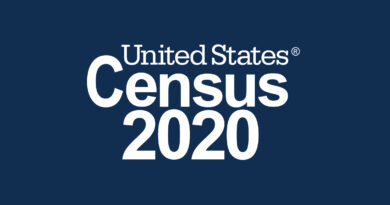The Teenager’s Guide to Government!
Are you wondering where or how you can register to vote in the 2024 elections? Maybe you’ve heard that the government is about to shut down, but why should you care? And how does it affect you? Here, I’ll give you the most important information about how you can vote, what’s going on in the government, and why it matters to you.
How can I vote in the 2024 elections?
As of the publication of this article, there is only a year and 12 days until the 2024 general elections. Many of us want to vote to have our voices heard in government but aren’t quite sure how to sign up. During lunch on Thursday, October 26, Blake will host a voter registration drive in the lobby outside the cafeteria. Staff will help students to sign up and register to vote in the upcoming elections. If you can’t make the registration drive, you can visit vote.org to register on your own. Although it might seem like a confusing process, registering is easy and only takes a couple of minutes.
You’ll be eligible to vote if you are a U.S. citizen and will be 18 years old by Election Day. That means you can vote if you were born on or before November 5, 2006. Also, you can still register to vote if you’re at least 16 years old, although you won’t be able to vote until the following election cycle.
On Election Day, registered voters will vote in general elections for the President and Congress, alongside local elections for the state of Maryland and Montgomery County. Additionally, primary elections will be held in May to choose candidates for the November elections. Voters must be registered in order to be eligible to vote. Register to vote to let your voice and opinions be heard!
What’s this government shutdown I’ve heard about, and why does it matter?
You’ve probably heard in the news that the government is in danger of shutting down soon. How did this happen, and what effects will it have on you?
Over 150,000 people in Maryland work for the federal government, meaning you or someone you know will likely have a parent or family member impacted by a potential shutdown. If the government does shut down, most federal workers would be affected. They would not go to work and their paychecks would be frozen, putting a financial strain on many families. Luckily, in 2019, a law was passed to guarantee that federal employees receive their pay after the shutdown is over, but it still could be difficult for families depending on how long a potential shutdown lasts.
Every year, the U.S. Congress must pass a spending bill to determine how the government uses its money. If the House and Senate can’t agree by the October 1 deadline, federal government agencies and programs stop operating until a spending bill is passed. On September 30, Congress passed a “stopgap” spending bill to avoid a shutdown, but it only lasts for 45 days. That stopgap will end soon, however, meaning that Congress will need to pass another spending bill by November 17, or else the federal government will officially be shut down. But they might not pass a spending bill by the deadline because…
What’s going on with the Speaker of the House?
Earlier this month, Kevin McCarthy, a Republican representative from California, was voted out of the Speaker of the House position. This was the first time in U.S. history that the Speaker had been voted out. Previously, in order to be chosen as Speaker in the first place, McCarthy had to make a number of promises to a small group of Republicans. A member of this same group led the vote to remove McCarthy after he collaborated with Democrats to pass the “stopgap” spending bill.
The Speaker of the House is essentially the “leader” of the House of Representatives. Without a Speaker, the House can’t function. This is important because all spending bills must start in the House, but the House of Representatives can’t introduce any bills without a Speaker in place.
The House has been looking for a new Speaker, but a good candidate hasn’t been found yet. Two Republican representatives, Steve Scalise from Louisana and Jim Jordan from Ohio, have already tried and failed to become the new speaker. Scalise won a close nomination by Republicans, but dropped out due to low overall support. Jordan failed to earn a majority of votes in three rounds of voting, and later dropped out as well. Multiple other representatives have now joined the race, but it’s unclear if any of them will receive enough support to be named the next Speaker of the House. Until a new Speaker is chosen, the state of the U.S. government will remain uncertain.




